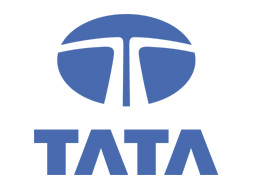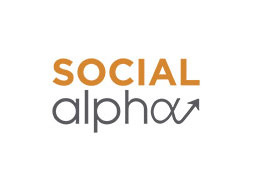Follow us on:



Registered: 12 months ago
Is It Ethical to Hire Online Class Help? A Deep Dive Introduction The rise of online education nurs fpx 4025 assessment 1 has revolutionized the way students learn, offering flexibility and accessibility to millions worldwide. However, the challenge of balancing coursework with personal and professional commitments has led many students to seek online class help services. These services promise to assist with assignments, discussions, quizzes, and even full courses, raising an important ethical question: Is it ethical to hire online class help? The ethical considerations surrounding this topic are complex and depend on intent, usage, academic policies, and personal values. While some argue that such services promote academic dishonesty, others believe they provide necessary support for struggling students. This article takes a deep dive into the ethical aspects of hiring online class help, exploring arguments for and against it, university policies, and ethical alternatives. Understanding Online Class Help Services Before diving into the ethical debate, it’s essential to understand what online class help services actually offer. These services range from: 🔹 Tutoring and study assistance – Helping students understand concepts, clarify doubts, and improve knowledge.🔹 Assignment assistance – Offering research, proofreading, and writing guidance.🔹 Full-course completion – Taking quizzes, exams, and entire courses on behalf of students. The ethical concerns primarily arise with full-course completion services, where a hired expert completes an entire class for a student. The Ethical Debate: Arguments For and Against 🟢 Arguments in Favor of Hiring Online Class Help Accessibility and Equal OpportunityMany students juggle work, family, and personal responsibilities while pursuing education. Online class help services provide equal opportunities for students who may struggle due to time constraints or lack of prior academic preparation. Educational Support vs. CheatingNot all online class help services engage in academic dishonesty. Some act as mentors and tutors, guiding students through difficult coursework. This is similar to hiring a tutor or using academic resources like Khan Academy or Coursera. Overcoming Institutional GapsMany educational institutions do not provide adequate support, leaving students feeling lost. A lack of one-on-one attention, unclear course instructions, or poor teaching methods can drive students to seek external help. Reducing Stress and Mental Health StrugglesThe pressure to excel academically while managing life’s demands can lead to burnout, anxiety, and depression. For some, outsourcing certain tasks is a way to reduce stress and focus on learning rather than just grades. 🔴 Arguments Against Hiring Online Class Help Violation of Academic IntegrityMost universities have strict policies against plagiarism, cheating, and academic dishonesty. Paying someone to complete coursework may violate school policies, leading to penalties such as:✅ Failing grades✅ Academic probation✅ Expulsion Undermining Personal Growth and LearningEducation is about gaining knowledge and critical thinking skills. If students outsource their learning, they miss out on the educational experience, which can impact future professional success. Unfair Advantage Over Honest StudentsHiring online class help creates an unfair academic playing field. While some students work hard, others may achieve the same grades through paid assistance. The Slippery Slope of DependencySome students who use online class help once may develop a habit of outsourcing work rather than engaging with learning materials. Over time, this can create a dependency that hinders intellectual growth. Ethical Responsibility to Employers and SocietyGraduates are expected to apply what they’ve learned in real-world situations. If someone earns a degree without truly understanding the material, it compromises professional integrity and could negatively impact workplaces, industries, and society. University Policies on Academic Integrity Most institutions have clear policies regarding academic integrity and misconduct. Below are common rules outlined by universities: 🔹 Plagiarism: Submitting someone else's work as your own is a serious offense.🔹 Unauthorized Assistance: Receiving help beyond allowed tutoring is considered cheating.🔹 Impersonation: Having someone else take an exam or complete coursework violates academic policies. Penalties for violating these rules range from failing grades to expulsion, making it critical for students to understand institutional policies before seeking online class help. University Statements on Online Academic Help Many universities explicitly prohibit third-party coursework completion. Here are common policy stances: 📌 Harvard University: Defines academic integrity as submitting work that is entirely one’s own and prohibits outsourcing assignments. 📌 Stanford University: States that "cheating includes submitting work that is not your own, regardless of the source." 📌 University of California: Warns against the use of external services to complete coursework, as it constitutes academic dishonesty. These guidelines emphasize that using online class help in unethical ways can have serious academic consequences. Ethical Ways to Use Online Class Help If you’re struggling academically but want to stay ethical, consider these alternatives: Hire Tutors, Not Ghostwriters Instead of paying someone to complete your work, hire a tutor to guide you through difficult concepts. Websites like Wyzant, Chegg Tutors, and Khan Academy offer ethical educational support. Use Legitimate Academic Assistance Services Platforms like Coursera, Udemy, and Study.com provide study guides, practice tests, and course explanations without violating ethical policies. Join Online Study Groups Collaborate with classmates in discussion forums, virtual study groups, or university learning centers to get the support you need. Improve Time Management and Study Skills Many students seek online class help because of time constraints. Consider using time management techniques like:✅ Pomodoro Technique – Study in short bursts with breaks.✅ Task Prioritization – Complete high-priority assignments first.✅ Productivity Apps – Use Notion, Evernote, or Trello to stay organized. Talk to Professors and Academic Advisors Many students hesitate to approach their professors for help, but instructors are often willing to provide guidance on difficult topics. Ethical Gray Areas: What About Proofreading, Editing, and Research Help? Some services assist students without crossing ethical lines, such as: 🔹 Proofreading and Editing Services – Correcting grammar and formatting is ethical as long as content remains original.🔹 Research Assistance – Providing study materials or research outlines without writing full essays.🔹 Study Guides and Summaries – Helping students understand complex topics without completing assignments for them. These services are widely accepted and do not violate academic integrity rules. How Institutions Can Address the Demand for Online Class Help Instead of strictly penalizing students for seeking help, universities can take proactive steps to reduce the need for such services: ✅ 1. Offer Better Academic Support 🔹 More accessible tutoring services🔹 Flexible office hours for professors🔹 Guidance on writing, research, and coursework ✅ 2. Introduce Realistic Course Workloads Many students seek help because courses overload them with assignments. Balancing workload expectations can reduce the demand for outsourcing coursework. ✅ 3. Provide Training on Academic Integrity Some students unknowingly violate academic integrity policies. Offering workshops on what constitutes cheating, plagiarism, and ethical learning can help students make informed decisions. Conclusion: Making Ethical Choices in Education The ethical debate surrounding hiring online class help ultimately comes down to intent and usage. ✅ Ethical Use: Tutoring, study support, editing, and proofreading services.❌ Unethical Use: Outsourcing full coursework, submitting work that is not your own, and violating academic policies. While balancing education with life’s demands can be challenging, choosing ethical study strategies not only ensures academic integrity but also enhances real learning. Rather than looking for shortcuts, students can adopt ethical alternatives that help them succeed while maintaining honesty and professionalism. Final Thought: Ethical education is not just nurs fpx 4035 assessment 2 about grades—it’s about building knowledge, integrity, and lifelong learning skills. Making the right choices today will benefit you in your academic and professional journey. 🚀
Topics Started: 0
Replies Created: 0
Forum Role: Participant













